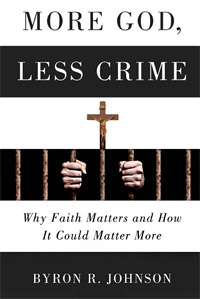Skepticblog
About Michael Shermer

Dr. Michael Shermer is the Founding Publisher of Skeptic magazine, the monthly "Skeptic" columnist for Scientific American, and author of Why people Believe Weird Things, an exploration into a variety of strange ideas, groups and cults. A psychologist, professor and historian of science, Dr. Shermer was also the co-producer and co-host of the Fox Family television series, Exploring the Unknown. Dr. Shermer has made countless appearances on television including, Oprah, Larry King Live, The Colbert Report, Dateline, 20/20, The History Channel, A&E, The Discovery Channel, and PBS as a skeptic of weird and extraordinary claims.
RSS feed for this authorwww.michaelshermer.com
www.skeptic.com
Subjects
aliens alternative medicine atheism autism belief bigfoot Brian Dunning CAM Carl Sagan climate change conspiracy theories Creation creationism critical thinking cryptozoology denialism dinosaurs Dr. Kiki earthquakes economics education environment ethics evolution fossils geology Ghost Hunting ghosts global warming God homeopathy intelligent design james randi journalism media medicine michael shermer morality nasa paleontology paranormal politics pseudoscience Psychics psychology religion science science denialism scope SETI Shermer skeptical history skepticism skeptoid Skeptologists TV ufo ufos vaccines videoRecent Comments
- Daniel Loxton commented on A Fond Farewell to Skepticblog at 1:25 pm, September 18, 2014
- markx commented on A Fond Farewell to Skepticblog at 8:52 pm, September 17, 2014
- Thomas commented on False Equivalence at 11:44 am, September 15, 2014
- John Greg commented on A Fond Farewell to Skepticblog at 2:10 pm, September 13, 2014
- tmac57 commented on A Fond Farewell to Skepticblog at 10:39 am, September 13, 2014
Read posts by author:
Teaching Allah and Xenu in Indiana
Last month, the Indiana State Senate approved a bill that would allow public school science teachers to include religious explanations for the origin of life in their classes. If Senate Bill 89 is approved by the state’s House its co-sponsor, Speaker of the House Dennis Kruse, hopes that this will open the door for the teaching of “creation-science” as a challenge to the theory of evolution, which he characterized as a “Johnny-come-lately” theory compared to the millennia-old creation story in Genesis: “I believe in creation and I believe it deserves to be taught in our public schools.” In this bill Kruse is challenging the U.S. Supreme Court’s 1987 decision in Edwards v. Aguillard that the mandatory teaching of a bible-based creation story in Louisiana public schools was violative of the first amendment and therefore unconstitutional (by a vote of 7-2, with Rehnquist and Scalia dissenting). “This is a different Supreme Court,” Kruse defiantly said in an interview. “This Supreme Court could rule differently.”
The language of the bill, however, was expanded by the Indiana State Senate Minority Leader Vi Simpson, a democrat, and includes the possibility of teaching the creation stories of religions other than Christianity. “The bill was originally talking about ‘Creationist Science,’ and I thought that was a bit of an oxymoron,” Simpson told the Village Voice. “I wanted to draft an amendment that would do two things. First, it would remove it from the science realm. And second, school boards and the state of Indiana should not be in the business of promoting one religion over another.” The bill now includes the following proviso: “The governing body of a school corporation may offer instruction on various theories of the origin of life. The curriculum for the course must include theories from multiple religions, which may include, but is not limited to, Christianity, Judaism, Islam, Hinduism, Buddhism, and Scientology.” (continue reading…)
comments (35)
The Natural & the Supernatural:
Alfred Russel Wallace and the Nature of Science
A couple weeks ago, I participated in an online debate at Evolution News & Views with Center for Science & Culture fellow Michael Flannery on the question: “If he were alive today, would evolutionary theory’s co-discoverer, Alfred Russel Wallace, be an intelligent design advocate?” Before reading this week’s post, you can review my opening statement in my previous Skepticblog and Flannery’s reply. The following is my response. A link to Flannery’s final reply can be found near the end of this page.
Michael Flannery’s assessment of Alfred Russel Wallace as a prescient scientist who anticipated modern Intelligent Design theory is premised on the belief that modern evolutionary biologists have failed to explain the myriad abilities of the human mind that Wallace outlined in his day as unanswered and—in his hyperselectionist formulation of evolutionary theory—unanswerable. In point of fact there are several testable hypotheses formulated by scientists—evolutionary psychologists in particular—that make the case that all aspects of the human mind are explicable by evolutionary theory. Flannery mentions just one—Steven Pinker’s hypothesis that cognitive niches in the evolutionary environment of our Paleolithic hominid ancestors gave rise to abstract reasoning and metaphorical thinking that enabled future humans to navigate complex social and cognitive environments found in the modern world. In his PNAS paper Pinker outlines two processes at work: “One is that intelligence is an adaptation to a knowledge-using, socially interdependent lifestyle, the ‘cognitive niche’.” And: “The second hypothesis is that humans possess an ability of metaphorical abstraction, which allows them to coopt faculties that originally evolved for physical problem-solving and social coordination, apply them to abstract subject matter, and combine them productively.” Together, Pinker concludes: “These abilities can help explain the emergence of abstract cognition without supernatural or exotic evolutionary forces and are in principle testable by analyses of statistical signs of selection in the human genome.” Pinker then outlines a number of ways in which the cognitive niche hypothesis has been and can continue to be tested.
In point of fact, Darwin himself addressed this larger problem of “pre-adaptation”: Since evolution is not prescient or goal directed—natural selection operates in the here-and-now and cannot anticipate what future organisms are going to need to survive in an ever-changing environment—how did certain modern useful features come to be in an ancestral environment different from our own? In Darwin’s time this was called the “problem of incipient stages.” Fully-formed wings are obviously an excellent adaptation for flight that provide all sorts of advantages for animals who have them; but of what use is half a wing? For Darwinian gradualism to work, each successive stage of wing development would need to be functional, but stumpy little partial wings are not aerodynamically capable of flight. Darwin answered his critics thusly: (continue reading…)
comments (9)Alfred Russel Wallace was a Hyper-Evolutionist, not an Intelligent Design Creationist
A couple weeks ago, I participated in an online debate at Evolution News & Views with Center for Science & Culture fellow Michael Flannery on the question: “If he were alive today, would evolutionary theory’s co-discoverer, Alfred Russel Wallace, be an intelligent design advocate?” The following is my opening statement in the debate. A link to Flannery’s reply can be found near the end of this page.
The double dangerous game of Whiggish What-if? history is on the table in this debate that inexorably invokes hindsight bias, along the lines of “Was Thomas Jefferson a racist because he had slaves?” Adjudicating historical belief and behavior with modern judicial scales is a fool’s errand that carries but one virtue—enlightenment of the past for correcting current misunderstandings. Thus I shall endeavor to enlighten modern thinkers on the perils of misjudging Alfred Russel Wallace as an Intelligent Design creationist, and at the same time reveal the fundamental flaw in both his evolutionary theory and that of this latest incarnation of creationism.
Wallace’s scientific heresy was first delivered in the April, 1869 issue of The Quarterly Review, in which he outlined what he saw as the failure of natural selection to explain the enlarged human brain (compared to apes), as well as the organs of speech, the hand, and the external form of the body:
In the brain of the lowest savages and, as far as we know, of the prehistoric races, we have an organ…little inferior in size and complexity to that of the highest types…. But the mental requirements of the lowest savages, such as the Australians or the Andaman Islanders, are very little above those of many animals. How then was an organ developed far beyond the needs of its possessor? Natural Selection could only have endowed the savage with a brain a little superior to that of an ape, whereas he actually possesses one but very little inferior to that of the average members of our learned societies.
(Please note the language that, were we to judge the man solely by his descriptors for indigenous peoples, would lead us to label Wallace a racist even though he was in his own time what we would today call a progressive liberal.) (continue reading…)
comments (10)Burning Man
Can burn patients really be healed from a distance by phone?
A couple of weeks ago I was at a meeting with television producers at a Pasadena, California hotel when I ran into a man named Richard Greene whom I had met last year at the debate that Leonard Mlodinow and I did with Deepak Chopra and others at Chapman University. With him was a woman named Dr. Marja Pronk, whom Greene introduced as someone who can heal burn patients from a distance by phone, and that she learned this skill under the tutelage of one Dr. Philippe Sauvage. Greene was interested in having me test Dr. Pronk while she was in town, but we ran out of time and the protocols and ethical considerations of intentionally burning either people or animals were prohibitive (in my view) and so at present we are still working on how this claim might be tested under controlled conditions. If you have any suggestions on how we might do this while also meeting the ethical requirements of an Institutional Review Board or Ethical Review Board that overseas the ethical treatment of human and animal subjects in experiments, please let me know.
First, I will provide you the background I was provided followed by my own thoughts on what it would take to test such a claim, along with my thoughts in between on Philippe Sauvage, which as you shall see is making extraordinary claims that go far beyond healing burn patients.
Richard Greene sent me this background material:

comments (66)As we discussed, the claims made by Breton “healer” Dr. Philippe Sauvage and his co-workers, including medical Dr. Marja Pronk (http://www.youtube.com/watch?v=sshO4IrvJzI and www.sosburn.info) are astounding and challenge almost every belief we have in Western science. To date there have been approximately 500 who have benefited from this technology in 29 countries (including 46 states in the US). Here, for example, is a video of 22 year old Chris Fleming from Ontario, CA. and some press clippings from Africa:
More God, Less Crime or
More Guns, Less Crime?
During the last week of 2011, I spoke at and attended a wonderful salon in Santa Fe, New Mexico organized and hosted by Sandy Blakeslee, the brilliant science writer for the New York Times and the author of numerous engaging popular books on neuroscience. Two of the speakers at the salon addressed the topic of the decline of crime, one (Byron Johnson) attributing it to god and the other (John Lott) to guns. Of the two, Lott by far took the day with superior data and better arguments, although for a much wider and deeper analysis of the decline of violence in general I highly recommend Steven Pinker’s The Better Angels of Our Nature: Why Violence Has Declined (Viking, 2011), which I recently reviewed in these pages.
Byron Johnson is a professor at Baylor University and the founding director of the Baylor Institute for Studies of Religion as well as director of the Program on Prosocial Behavior. Acknowledging that he took the title of his book, More God, Less Crime: Why Faith Matters and How It Could Matter More (Templeton Press, 2011) directly from Lott’s book, More Guns, Less Crime: Understanding Crime and Gun Control Laws (University of Chicago Press, 2010), Johnson mostly recounted his experiences working with prisoners in an attempt to lower recidivism rates by increasing religiosity…of the Christian variety, of course. What few data slides he presented harmed his case more than helped it by being either impossible to read (dark, small type) or countering his claim (one slide showed no difference in post-conversion crime rates). Even his anecdotes seemed to gainsay his thesis, as in recounting the story of one man who even after converting to Christianity refused to confess his crime of rape and murder of a young girl until he met her mother on the day of his execution, at which point he broke down and apologized to her. Additional anecdotes and frank admissions by Johnson only worsened his case, such as that many prisoners only convert in order to impress parole boards, and that many of his fellow Christians (he called them “high octane” evangelicals) were only in the game to tally up conversion scores in an environment ripe for the picking. (I routinely receive letters from prisoners who bemoan the constant evangelizing, not only by Christians but by Muslims as well who also see prisons as conversion opportunities. As the Russian comedian Yavak Smirnoff used to joke about performing in the USSR, mixing “captured” for “captive” audiences: “they’re not going anywhere!”) (continue reading…)
comments (182)
E Pluribus Unum
for all faiths and for none
Foreigners could be forgiven for thinking that America is fast becoming a theocracy. No fewer than three of the remaining Republican candidates (Rick Perry, Rick Santorum, and Michele Bachmann) have declared that they were called by God to run for the country’s highest office. Congress recently voted to renew the country’s motto of “In God We Trust” on nothing less than the coin of the realm. And this year’s Thanksgiving Forum in Iowa (co-sponsored by the National Organization for Marriage) featured most of the major Presidential candidates competing for the title of God’s quarterback.
Rick Santorum, for example, in the course of denouncing Islamic Sharia law, inadvertently endorsed the same as long as it is a Christian on the Judge’s bench: “Unlike Islam, where the higher law and the civil law are the same, in our case, we have civil laws. But our civil laws have to comport with the higher law.” Not content to speak in such circular generalities, Santorum targeted his faith: “As long as abortion is legal—at least according to the Supreme Court—legal in this country, we will never have rest, because that law does not comport with God’s law.” God’s law? That is precisely the argument made by Islamic imams. But Santorum was only getting started. “Gay marriage is wrong. The idea that the only things that the states are prevented from doing are only things specifically established in the Constitution is wrong. … As a president, I will get involved, because the states do not have the right to undermine the basic, fundamental values that hold this country together.” Christian values only, of course. (continue reading…)
comments (76)Paleolithic Politics
Has there ever been a time when the political process has been so bipartisan and divisive? Yes, actually, one has only to recall the rancorousness of the Bush-Gore or Bush-Kerry campaigns, harken back to the acrimonious campaigns of Nixon or Johnson, read historical accounts of the political carnage of both pre- and post-Civil War elections, or watch HBO’s John Adams series to relive in full period costuming the bipartite bitterness between the parties of Adams and Jefferson to realize just how myopic is our perspective.
We can go back even further into our ancestral past to understand why the political process is so tribal. But for the business attire donned in the marbled halls of congress we are a scant few steps removed from the bands and tribes of our hunter-gatherer ancestors, and a few more leaps afield from the hominid ancestors roaming together in small bands on the African savannah. There, in those long-gone millennia, were formed the family ties and social bonds that enabled our survival among predators who were faster, stronger, and deadlier than us. Unwavering loyalty to your fellow tribesmen was a signal that they could count on you when needed. Undying friendship with those in your group meant that they would reciprocate when the chips were down. Within-group amity was insurance against the between-group enmity that characterized our ancestral past. As Ben Franklin admonished his fellow revolutionaries, we must all hang together or we will surely hang separately.
In this historical trajectory our group psychology evolved and along with it a propensity for xenophobia—in-group good, out-group bad. Thus it is that members of the other political party are not just wrong—they are evil and dangerous. Stray too far from the dogma of your own party and you risk being perceived as an outsider, an Other we may not be able to trust. Consistency in your beliefs is a signal to your fellow group members that you are not a wishy-washy, Namby Pamby, flip-flopper, and that I can count on you when needed. (continue reading…)
comments (71)
Is America a Christian Nation?
Readers Respond to Chuck Colson
On November 4, the Los Angeles Times published my Opinion Editorial entitled “What’s God Got to do With it?” (which I also posted on Skepticblog) about Congress reaffirming our national motto “In God We Trust.” I argued that trust does not come from God but from very specific social, political, and economic institutions.
Chuck Colson, the one-time special counsel for President Richard Nixon, one of the Watergate Seven who also pleaded guilty to obstruction of justice in his attempt to defame the Pentagon Papers defendant Daniel Ellsberg, and the man who found God and Jesus just in time for his jail sentence in federal prison, now blogs on political and social issues from a Christian perspective and has attempted a smack-down of my Op-Ed by arguing that “God Has a Lot to Do With It.”
His argument is summarized in his own words thusly: (continue reading…)
comments (79)What’s God Got to Do With It?
He may be invoked in the national motto, but God has nothing to do with why Americans are free and secure
This op-ed was originally published in the Los Angeles Times, Friday November 4, 2011.
The House of Representatives voted last week by a margin of 396–9 to reaffirm as the national motto the phrase “In God We Trust,” and encouraged its pronouncement on public buildings and continued printing on the coin of the realm. The motto was made official in 1956 during the height of Cold War hysteria over godless communism and—in the words of Brig. Gen. Jack D. Ripper in Stanley Kubrick’s and Peter Sellers’ 1964 classic antiwar film Dr. Strangelove—“Communist infiltration, Communist indoctrination, Communist subversion and the international Communist conspiracy to sap and impurify all of our precious bodily fluids.”
As risible a reason as this was for knocking out a few bricks in the wall separating state and church, it was at least understandable in the context of the times. But today, with no communist threats and belief in God or a universal spirit among Americans still holding strong at about 90%, according to a 2011 Gallup Poll, what is the point of having this motto? The answer is in the wording of the resolution voted on: “Whereas if religion and morality are taken out of the marketplace of ideas, the very freedom on which the United States was founded cannot be secured.” (continue reading…)
comments (153)Hosted by Skeptic magazine. For website-related matters, contact the webmaster.


The lesson from evolutionary economics is bottom-up self-organization, not top-down government design
A review of The Darwin Economy: Liberty, Competition, and the Common Good by Robert H. Frank. Princeton University Press, 2011, 240 pages. This review appeared online in the Journal of Bioeconomics in March 2012.
Order the book from Amazon
When I entered the world of competitive bicycle racing in 1980 no serious cyclist wore a helmet in training, and the leather “hair net” required by some race organizations—thin bands of leather-wrapped cotton stuffing—did nothing more than prevent your hair from getting mussed upon impacting pavement. Bell Helmets already had the technology from their motorcycle division to make a viable crash-tested safety helmet for bicycling, but elite cyclists are an elitist cohort that follows the trends of what looks good as much as what works well. The perception at the time was that a helmet was delimiting on performance and made you look like a “Fred”—two-wheel-speak for geek. Even if an individual cyclist wanted to don protection, unless everyone else did as well the competitive choice was to race sans helmet. When I was sponsored by Bell to compete in the Race Across America—the 3,000-mile nonstop transcontinental bicycle race—they engaged me to help design a helmet that elite cyclists would wear that would, in marketing theory, inspire the masses of two-wheelers to follow in emulation. We came up with the V1-Pro, a model that aped the leather hair net in design but was made of the same compressed polystyrene foam utilized in motorcycle helmets for absorbing the energy of an impact. Nonetheless, it was shunned by the pros until the Union Cycliste International (UCI)—the governing body of professional cycling—mandated the use of safety helmets for all cyclists in all races. No helmet, no race. Period. I was relieved, as were many other cyclists I knew, because I wanted to wear a helmet but didn’t want to stand out or lose a slight competitive edge. In time, as helmet use grew in popularity market forces worked effectively to make them lighter, cooler, and colorfully trendy. Now everyone wears them and we are all better for it.
1 The collective action problem
According to the Cornell University economist Robert Frank, this is an example of a collective action problem that requires top-down government-like regulation.Without such mandated intervention, people will not do what is best for themselves or the group, and this leads to market inefficiencies and moral failures. In his latest book, The Darwin Economy: Liberty, Competition, and the Common Good, Frank uses such collective action problems to make the case for why governments must intervene in economic transactions. Financial exchanges in a free market carry externalities—benefits and costs not included in the price of the transaction that is incurred by one or more of the parties involved, with or without their knowledge or agreement. In my aforementioned example, the UCI had to intervene into and mandate the use of helmets for the collective good, because individual cyclists within the collective body known as the peloton will not have the motivation to do so otherwise (Frank uses NHL hockey helmet rules as his type specimen but the principle problem is the same). From governing bodies in sports, Frank extrapolates to government agencies in society, arguing that in order to correct for market inefficiencies and moral failures we need more government regulations and taxes. (continue reading…)
comments (118)